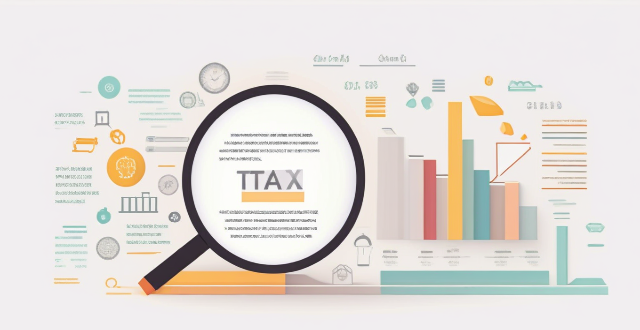This article discusses the tax benefits of investing in certain financial products such as retirement accounts, stocks, bonds, and real estate investments. It explains how these investments can help reduce taxable income and save money on taxes, while also growing wealth over time. The article provides an overview of the different types of retirement accounts and their tax benefits, as well as the advantages of investing in stocks and bonds, including capital gains taxes, dividend income, and interest income. It also covers the tax benefits of real estate investments, such as depreciation, tax credits, and rental income deductions. The article emphasizes the importance of understanding the tax implications of each investment option and working with a qualified financial advisor to develop a strategy that meets individual goals and minimizes tax liability.

Tax Benefits of Investing in Certain Financial Products
Investing in certain financial products can offer significant tax benefits. These benefits can help you save money on your taxes and grow your wealth over time. In this article, we will discuss some of the key tax advantages of investing in financial products such as retirement accounts, stocks, bonds, and real estate investments.
Retitime Accounts
Retirement accounts are one of the most popular ways to invest for tax benefits. They allow you to save money for retirement while also reducing your taxable income. Here are some of the main types of retirement accounts and their tax benefits:
Traditional IRA
A traditional IRA allows you to make pre-tax contributions, which means that you can deduct your contributions from your taxable income. This can lower your overall tax bill and increase your retirement savings at the same time. However, when you withdraw money from a traditional IRA during retirement, you will have to pay taxes on those withdrawals.
Roth IRA
A Roth IRA allows you to make after-tax contributions, which means that you cannot deduct your contributions from your taxable income. However, when you withdraw money from a Roth IRA during retirement, you will not have to pay taxes on those withdrawals. This can be especially beneficial if you expect to be in a higher tax bracket during retirement.
401(k) Plans
401(k) plans are employer-sponsored retirement accounts that allow you to make pre-tax contributions. This can reduce your taxable income and lower your overall tax bill. Additionally, many employers offer matching contributions, which can further boost your retirement savings.
Stocks and Bonds
Investing in stocks and bonds can also offer tax benefits. Here are some of the key advantages:
Capital Gains Taxes
When you sell stocks or bonds for more than you paid for them, you may be subject to capital gains taxes. However, the tax rate for long-term capital gains (held for more than one year) is generally lower than the tax rate for short-term capital gains (held for less than one year). This can help you minimize your tax liability and maximize your investment returns.
Dividend Income
If you own stocks that pay dividends, you may be eligible for certain tax benefits. For example, qualified dividends are taxed at a lower rate than ordinary income, which can help you save money on your taxes.
Interest Income
If you invest in bonds, you may earn interest income. While interest income is generally taxable, certain types of bonds (such as municipal bonds) may offer tax advantages. For example, interest earned on municipal bonds used to fund public projects is often exempt from federal income taxes.
Real Estate Investments
Investing in real estate can also provide tax benefits. Here are some of the key advantages:
Depreciation
When you own rental property, you can deduct depreciation expenses from your taxable income. Depreciation is a non-cash expense that represents the wear and tear on your property over time. By deducting depreciation expenses, you can reduce your taxable income and lower your overall tax bill.
Tax Credits
If you invest in certain types of real estate projects, such as historic buildings or low-income housing, you may be eligible for tax credits. These credits can help you offset your tax liability and potentially increase your investment returns.
Rental Income
If you rent out property, you may earn rental income. While rental income is generally taxable, there are several deductions available to landlords that can help reduce your taxable income. For example, you can deduct expenses related to maintenance, repairs, insurance, and property management fees from your rental income.
In conclusion, investing in certain financial products can offer significant tax benefits. By taking advantage of these benefits, you can save money on your taxes and grow your wealth over time. Whether you choose to invest in retirement accounts, stocks and bonds, or real estate investments, it's important to understand the tax implications of each option and work with a qualified financial advisor to develop a strategy that meets your goals and minimizes your tax liability.